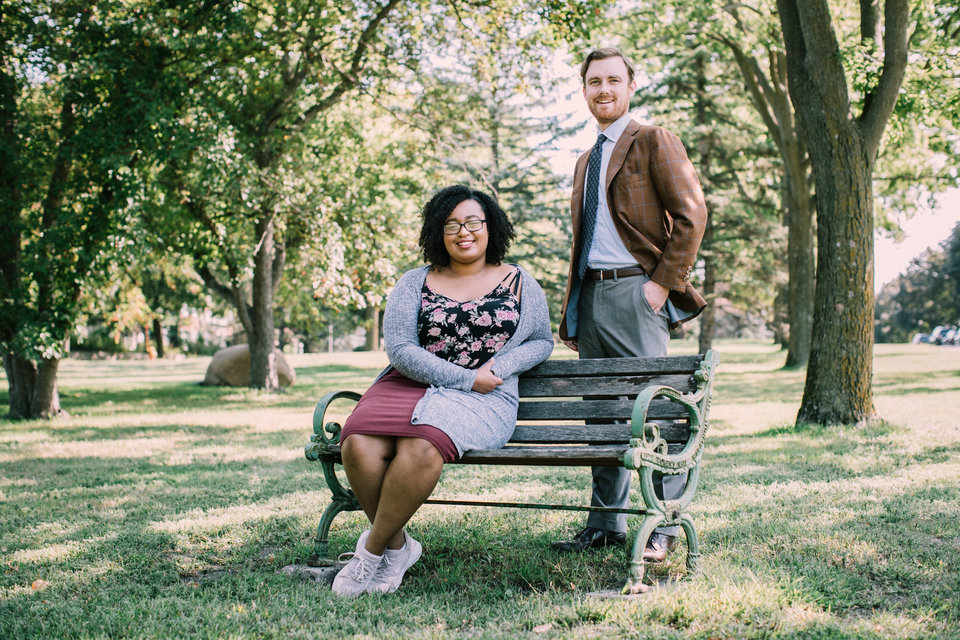Like many students at the beginning of their college journey, Bontu Gemeda wasn’t sure what she wanted to study. English was a possibility. A career as a teacher was a serious contender. She even considered becoming a lawyer specializing in mergers and acquisitions.
None of those options seemed quite right, though. Once she decided on the history program in the College of Arts and Sciences and was accepted into the Excel! Research Scholars program, things began to fall into place.
“This time last year, I was panicking,” said Gemeda, a senior. “I still wanted to be a teacher, but I was switching my major. I really didn’t even think about doing research or any type of professional development. I wasn’t thinking of history as a profession. Now I’m looking at it as not only a subject to be studied, but also a profession. It has become more tangible for me than it was last year.”
As part of the Excel! program, Director Cynthia Fraction works with a select group of undergraduate students each year, helping prepare them for graduate school admission, the rigors of graduate studies, and to be competitive for graduate school funding through involvement in research and other scholarly activities. There are also the many vital heart-to-heart talks she has with students – including Gemeda – to help them figure out exactly where their passions lie.
Major components of Excel! also include working with a faculty mentor on a research project and going on the We March for Justice trip, where students travel to the South to study the American civil rights movement. The journey had a major impact on Gemeda and inspired her research subject – “Disruption in the Delta: How the Lack of Government Oversight Harmed African Americans in the Mississippi Delta.”
“Her research was very fascinating,” Fraction said. “My hope when I first started doing these trips in 2012 was for students to be able to understand another part of the country that directly impacts the entire nation. That there are differences and we’ve come a long way, but we still have a long way to go.”
Fraction connected Gemeda with faculty mentor David Williard, an associate professor in the history program, who helps lead the We March for Justice trip.
“Connecting students to academic enrichment opportunities with faculty who are talking and studying things that are related to what the students want to do or what has impacted them really opens up a new window of opportunity,” Fraction said.
Gemeda spent the summer working on her paper under the guidance of Williard. She focused on state and government policies in Mississippi and the impact they had on African-Americans post-Brown v. Board of Education, the landmark 1954 U.S. Supreme Court case declaring segregated schools unconstitutional.
“I had a vague idea of what history was before working with Dr. Williard,” Gemeda said. “But I didn’t understand the work that had to be included in it. Before, I saw it as you write a paper, you submit it and it’s done. I didn’t think that this could be something to change how people view the world now.
“Dr. Williard taught me that I shouldn’t limit myself," she added. "He said my paper could be published for a nonacademic audience because what I did was very relevant. At one point, I just wanted to get it done where it was satisfactory. The more I thought about it, I discovered this was something I could do for a job. I can do research and show people the actual relevance of the work. The way people think about history is it happened in the past and that’s it. They think about history as the study of dates and events. But that couldn’t be further from the truth. Good history is when you look at those dates and events and then ask, ‘Why does this matter?’”
Williard says what’s most impressive about Gemeda is her love for history and that she has a sense of what she wants to pursue in historical study.
“There’s a dialogue, a curiosity that she brings to the process,” he said. “Not just in the work, but also figuring out what that work might do for her in terms of future pathways. It’s always an open conversation. It’s never her trying to pick a path too fast or asking me to pick a path for her. It’s exactly what you want a guided mentored relationship to look like.”
Gemeda’s dream job after graduate school is to work as an archivist at the Smithsonian or as a researcher at the Library of Congress – two careers not even on her radar at this time last year. Having Williard and Fraction in her corner showed her she was “no longer fighting in the dark” when it came to figuring out her academic goals.
“Dr. Williard helped me become a historian rather than just a person who studies history,” Gemeda said. "Without him, I wouldn’t be where I am right now thinking about graduate school. Before I entered college my dad asked if I wanted to get my master’s degree – I said, ‘Ha – no! Why would I go to even more school? I just want this degree and want to get out.’ Now I’m so excited to go to grad school – it’s a continuation of what I want to do.”







